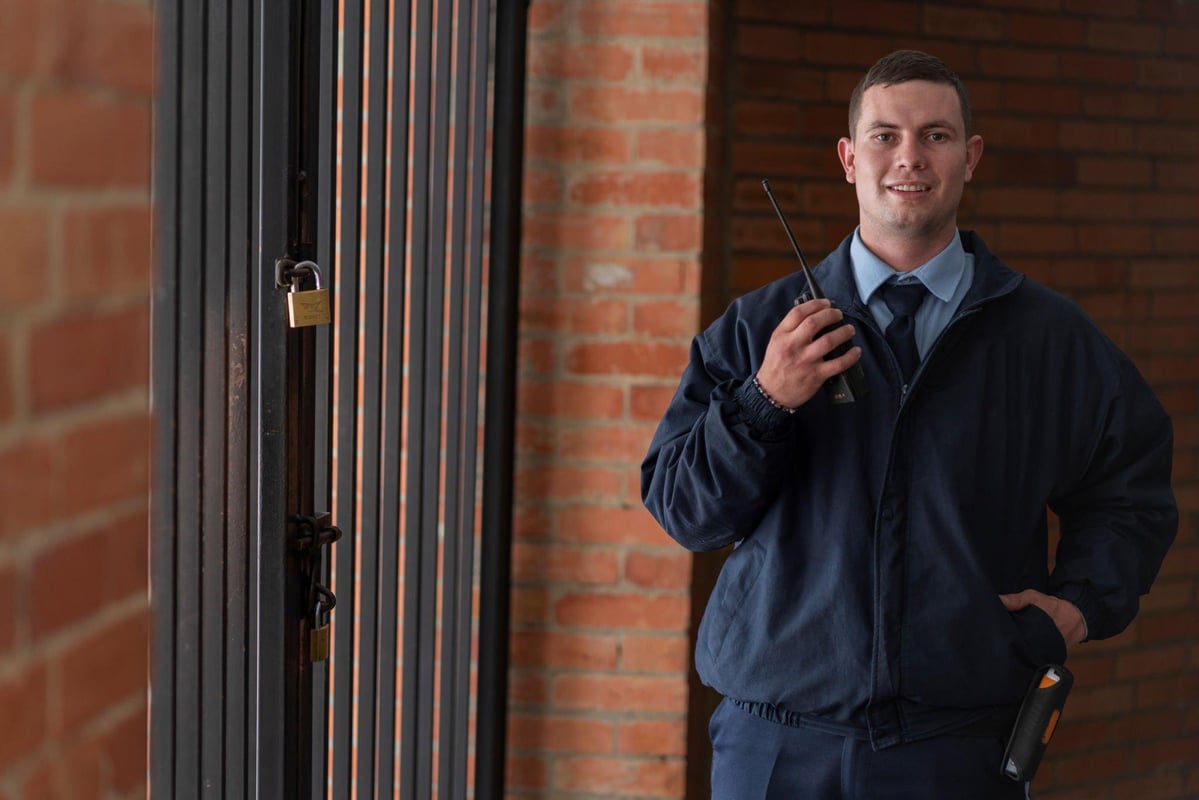Is Security Guard a Good Job? Pros and Cons (2024)

The demand for security guards is always present in our community. In every place we go, security is a top priority. Before deciding to dive into a career as a security guard, it is essential to weigh the pros and cons and the various aspects of this important profession.
Key Points:
-
A security guard is a professional responsible for protecting assets, deterring criminal activity, and ensuring safety. Their tasks are patrolling properties, monitoring surveillance systems, responding to emergencies, and liaising with law enforcement agencies.
-
General requirements to become a security guard are a high school diploma or its equivalent, a state-approved security guard training program, and a background check and fingerprinting.
-
The length of security guard training programs varies, but typically, they run for around 8-16 hours initially but more training hours might be required depending on your state and ongoing education for license maintenance.
-
According to the U.S. Bureau of Labor Statistics, the median pay for security guards is $37,090 as of May 2023.
Is it worth it to work in security?
Yes, working in security can be rewarding! It offers job stability, opportunities for growth, and the chance to help protect people and property.
What are the risks of being a security guard?
Security guards can face physical risks, such as confrontations or attacks. They may also work in challenging environments and during odd hours. However, proper training and safety measures can mitigate these risks.
What is the biggest challenge of a security guard?
One of the biggest challenges for security guards is maintaining vigilance and alertness during long shifts, which can be physically and mentally demanding. They also need to handle high-stress situations calmly and professionally.
What is the most a security guard can make? What state pays security guards the most?
As of May 2023, the highest 10% of security guards earned around $57,400. The state that pays the highest mean wage for security guards is the District of Columbia, at $54,830 per year, $26.36 per hour!
Final Thoughts
Becoming a security guard can be a rewarding career choice for individuals who are interested in ensuring the safety and security of others. While the job offers stability and flexibility, it also comes with certain challenges and risks. It is important to carefully consider the pros and cons, assess one's skills and qualifications, and evaluate personal suitability before making a decision. If you are interested in pursuing a career as a security guard, platforms like Dreambound can help you find the right training programs and courses to kick-start your journey. Dreambound is the largest platform for students to find vocational training programs, such as allied health or industrial trades. Their mission is to provide all the information students need to find the perfect class.
Navigate the certification journey in this field with Dreambound's detailed guides, each crafted for various places. For a deeper understanding of the process in different states, our additional guides may be able to help.
- How to Become a Security Guard in Alabama
- How to Become a Security Guard in Indiana
- How to Become a Security Guard in Nevada
- How to Become a Security Guard in Rhode Island
- How to Become a Security Guard in West Virginia
Contemplating a change in your career path? Dreambound has written many comprehensive guides to aid you in making well-informed decisions.

Stephanie Dayak is the go-to person for everything related to automation and integrations at Dreambound. As a Certified Tax Technician turned tech whiz, her sharp eye for detail and passion for efficiency become evident in every project she undertakes. When not solving tech puzzles, she's out exploring the local food scene, cozying up with her dogs, or plugged into a thought-provoking podcast. She's an ardent believer in mixing fun with functionality!




